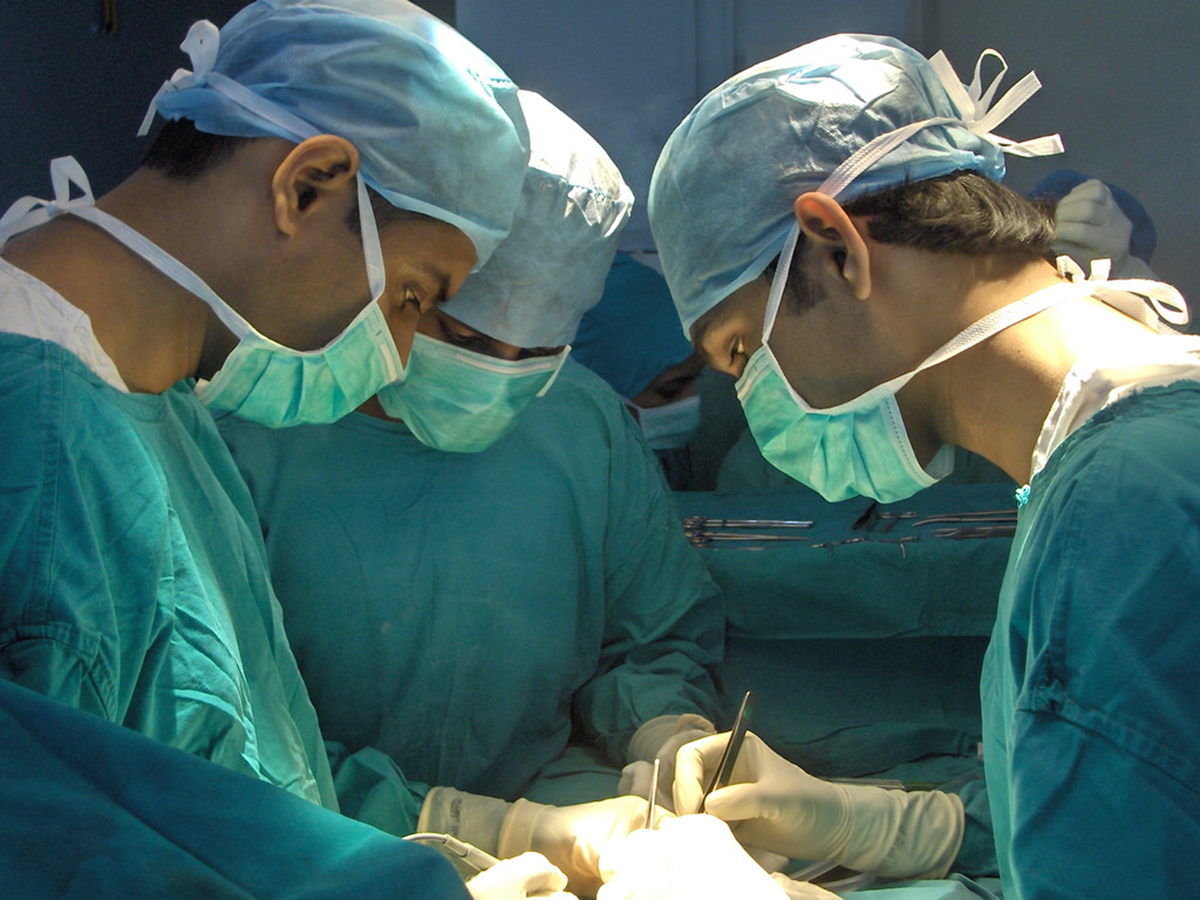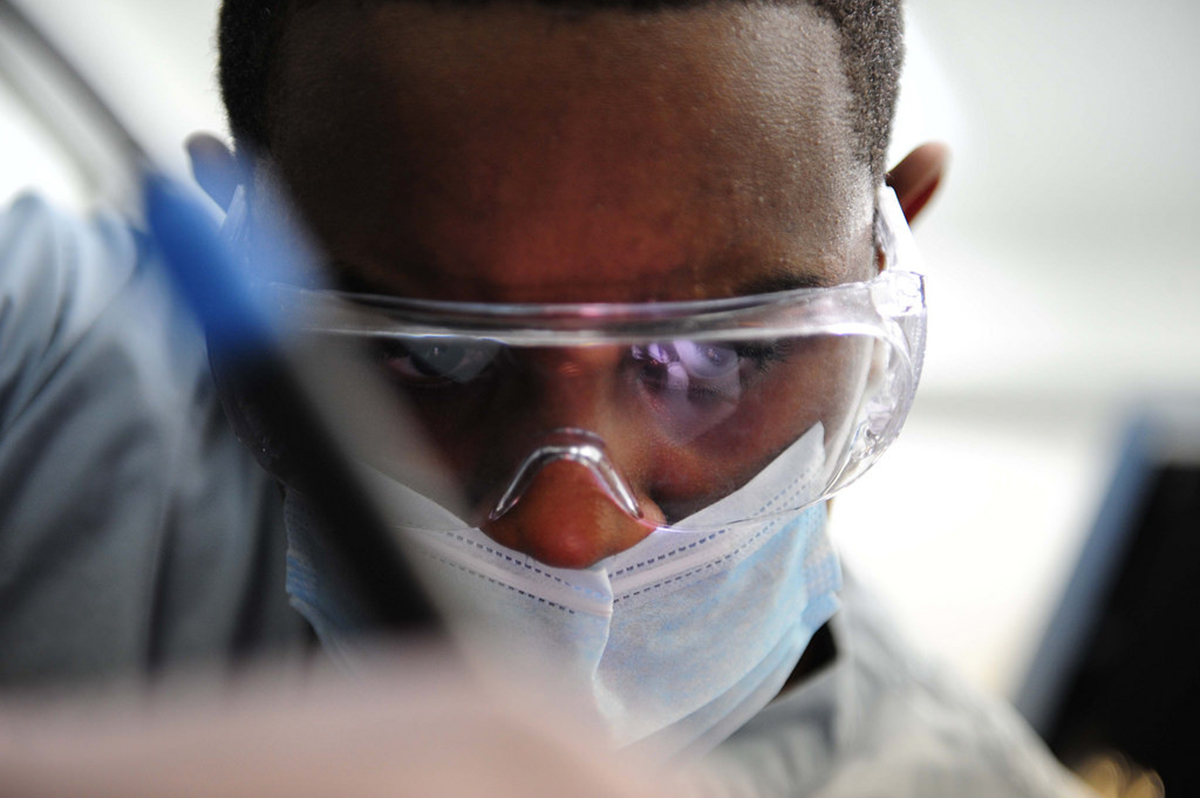Some doctors are happy to remain as general practitioners and manage patients from babies to older people, diagnose and treat common illnesses and infections, manage chronic diseases, perform routine check-ups and screening on patients and refer to specialist doctors where necessary.
General practitioners (GPs) are very important in medicine as they advocate for their patients when they need to be referred for further appropriate assessments and management. GPs can also further their knowledge by taking part in courses which improve their clinical and practical skills. These courses can include surgical skills’ training, which is necessary for performing small procedures such as removing small lumps and inserting sutures, and infectious disease courses which help to educate a doctor in the treatment of illnesses such as tuberculosis and HIV.
Other courses and diplomas that GPs can take part in include training in tropical diseases, sports medicine, obstetrics and gynaecology and anaesthetics.

Introduction To Medical And Surgical Specialties
Besides the availability of the above-mentioned courses and diplomas, doctors can specialise further into medical or surgical disciplines.
In order to train further into a chosen specialty, a prospective candidate needs to complete an undergraduate medical degree, a bachelor of medicine and surgery. Depending on which country one lives in, certain residency and internship years need to be completed where doctors are exposed to different disciplines of medicine. Here, a doctor can get a better idea of what to expect when studying, working and training in their chosen field.
Once a doctor has decided that they want to specialise, they would then have to contact the relevant department at the university they want to study at and apply for a post, if it's available. The prospective candidate will then be invited to sit for an interview if their application is successful. If the panel responsible for choosing new candidates is happy with the doctor, then they will approve the doctor for the available post.
The doctor will then have to notify their country's medical council to inform them that they have started specialising in a postgraduate discipline, as well as their medical malpractice insurer in order to be licensed and covered for the correct specialist field, respectively.
Training as a specialist can take between 4 and 5 years to complete, depending on the discipline. Two specialist posts are available in a medical or surgical department for every consultant that is present. A doctor wanting to specialise will then have a mentor available at all times in order to learn new techniques and procedures as well as ask relevant questions to further their knowledge. A specialising doctor will be expected to perform procedures and see patients themselves by the time they near the end of their training. These doctors are also expected to be available after-hours in order to manage emergency cases when they do occur.
Once these doctors have successfully completed their theoretical and practical assessments in their chosen specialty, they can decide to start working as consultants in the department they trained in or go into private practice. If a specialist wants to sub-specialise then a further 2 to 3 years of fellowship training needs to be done in order to do so.
Internal Medicine
Internal medicine is the study of the different pathologies which can affect the various systems of the adult human body, and where medical intervention is necessary in order to manage these conditions. These doctors are called internists or physicians and they diagnose and manage chronic conditions such as hypertension and diabetes. Physicians can even sub-specialise further in specific systems of the body. The various can find include the following:
- Neurologists – these doctors specialise in the diagnosis and medical management of diseases that affect the neurological system, which includes the central nervous system (brain and spinal cord), the peripheral nervous system (nerves which spread out from the spinal cord to the limbs) and the autonomic nervous system (sympathetic and parasympathetic systems which regulate themselves). Conditions which are managed by these doctors can include strokes, epilepsy, meningitis, and multiple sclerosis.
- Cardiologists – these specialists are involved with the diagnosis and management of conditions which affect certain parts of the cardiovascular system. These specific areas include the heart (coronary artery disease, congenital heart defects, valvular heart diseases and heart failure) as well as parts of the circulatory system. Cardiologists are also involved in dealing with the electrophysiology of the heart, that is to say that they also diagnose and manage conditions of the heart where it beats abnormally or out of rhythm (arrhythmias). These physicians also perform angiograms where the coronary arteries of the heart are examined, and where possibly stents are placed in order to improve blood flow via these arteries to the heart.

- Pulmonologists – conditions of the lungs are diagnosed and treated by these doctors. They can include acute problems such as bronchitis and pneumonia to chronic issues such as emphysema and chronic obstructive pulmonary disease (COPD). Pulmonologists will also initially manage complications caused by pulmonary cancers, such as small cell carcinomas and mesotheliomas, before these patients are referred to other specialists for further management.
- Gastroenterologists – these doctors deal with conditions which affect the organs of the gastrointestinal tract. These organs include the oesophagus, stomach, small intestines and colon (including the rectum and anus). A super-specialty of gastroenterology includes hepatology (or hepatobiliary medicine) and this includes the study of the liver, pancreas, gallbladder and biliary tree.
- Nephrologists – here, the focus is the study of diseases of the kidneys and their blood supply. These doctors will concentrate on chronic conditions which affect the kidneys such as diabetes and hypertension. Other conditions affecting the kidneys such as congenital deformities or hereditary illnesses are diagnosed and managed by these doctors, too.
- Endocrinologists – these doctors specialise in disorders of the hormone-producing glands of the body. These organs include the pituitary gland in the brain, the thyroid gland, the pancreas, the adrenal glands, the ovaries and the testes. Any abnormality in these hormone producing organs can lead to changes in a patient’s growth, immune functioning, glucose levels and metabolism rates.
- Rheumatologists – in this discipline, conditions such as rheumatoid arthritis, systemic lupus erythematosis and other autoimmune diseases, which affect areas of the body such as blood vessels (vasculitis) and soft tissues (scleroderma), are investigated and managed further. Rheumatology is increasingly becoming a study in immunology since the immune system is primarily affected in the aforementioned conditions.
- Haematologists – these doctors study diseases that affect the generation of blood and its factors such as haemoglobin, blood proteins and cells, platelets, blood vessels, bone marrow, the spleen and the process of blood clotting. Haematological illnesses can include haemophilia, blood cancers such as myelomas, leukaemias and lymphomas as well as other bleeding conditions.
- Infectious disease specialists – doctors who specialise in infectious diseases are focused on diseases caused by micro-organisms. They will mainly be involved with severe infections such as complicated HIV, multiple and extreme drug-resistant tuberculosis and patients diagnosed with highly transmittable tropical diseases such as ebola. These doctors’ opinions are sought by others when they are dealing with patients with hospital-acquired infections and which tend to be more resistant to antibiotic, antiviral and antifungal medications.
- Allergists – an allergist is a physician who specializes in the diagnosis and treatment of asthma and other allergic diseases. These doctors are specially trained to identify the factors that trigger asthma or allergies and therefore help people treat or prevent their allergy related problems.
General Surgery
General surgery is the discipline where doctors diagnose certain conditions and manage them through surgical interventions. This can include opening, removing and/or re-attaching parts of the human anatomy in order to cure a patient’s condition. The most common surgery done worldwide is removal of the gallbladder, called a cholecystectomy, and this procedure can be done by a general surgeon. Like internal medicine, doctors who specialize in surgery can also sub-specialise in specific systems of the body.
In this section, we shall discuss the different surgical sub-disciplines when specialising in general surgery. They include the following disciplines:
- Trauma surgeon – these surgeons are usually called upon when an emergency procedure needs to be performed in order to try and preserve a patient’s life. These surgeries include emergency thoracotomies (opening up the chest) or laparotomies (opening up the abdomen) in order to control bleeding from large blood vessels due to a stabbing or gunshot. Emergency crycothyrotomies (gaining access through the neck from just under the thyroid cartilage) are also done by these surgeons when an emergency airway is needed. Trauma surgeons may also be consulted to perform an emergency removal of an appendix or colon if these tissues rupture.
- Laparoscopic surgeon – this is a relatively new discipline and makes use of laparoscopic procedures (using minimally invasive instruments) in order to reduce unnecessary scarring which can be left by performing more invasive surgical procedures. These procedures are used for elective and non-emergency surgeries, since the latter needs a sense of urgency which isn’t possible by using minimally invasive instruments. Laparoscopic surgery does offer a faster recovery time for patients, as well as less exposure to anaesthetic drugs, and this is what makes it quite popular amongst surgeons and patients.

- Breast surgeon – these surgeons focus on pathology involving the breast tissue in both men and women. The procedures they perform include minor ones, from removing small benign lumps, to removing all breast tissue together with lymph nodes in the axillae (armpits) for severe malignant breast cancers. Breast surgeons focus exclusively on non-cosmetic procedures pertaining to the breasts.
- Colorectal surgeon – specialist colorectal surgeons treat a wide variety of minor and major colon and rectal conditions. These include inflammatory bowel diseases (such as ulcerative colitis or Crohn's disease), diverticulitis, gastrointestinal bleeding, colon and rectal cancers and haemorrhoids. Treatment of these conditions can be done conservatively with medication, but may need surgical intervention if the issues complicate.
- Vascular surgeon – these surgeons diagnose and treat conditions which need surgical intervention and involve specific arteries and veins in the body. The most common vessels which are focused on include the carotid arteries and jugular veins in the neck, the aorta artery and vena cava vein in the abdomen and the peripheral arteries and veins in the upper and lower limbs.
- Endocrine surgeon – endocrine surgeons are trained to manage certain endocrine pathologies by removing all or part of organs such as the thyroid and parathyroid glands in the neck, insulin producing masses on the pancreas (insulinomas) and the adrenal glands that are situated just above each kidney in the abdomen.
- Cardiothoracic surgeon – these surgeons study in the field of surgery that involves the treatment of organs inside the chest. Thus, this surgical discipline involves the treatment of conditions of the heart and lungs. These surgeons perform procedures such as coronary artery bypass grafts, heart and lung transplants, heart valve replacements and excision of malignancies involving lung tissue.
- Paediatric surgeon – paediatric surgery involves performing surgery on fetuses, infants and children. In some countries paediatric surgeons also operate on adolescents and young adults. There are also sub-specialties of paediatric surgery itself and they include neonatal and fetal surgery.
There are other areas of surgery that also have paediatric specialties of their own that require further training and they include the following:
- Paediatric neurosurgery.
- Paediatric cardiothoracic surgery.
- Paediatric urological surgery (surgery on the child's bladder and other structures below the kidney necessary for ejaculation).
- Paediatric nephrological surgery (surgery on the child's kidneys and ureters, including renal or kidney transplantation).
- Paediatric emergency surgery.
- Paediatric hepatological and gastrointestinal surgery. This can also include liver and intestinal transplantation.
- Surgery involving fetuses or embryos (this overlaps with obstetric/gynaecological surgery, maternal-fetal medicine and neonatology).
- Paediatric orthopaedic surgery (muscle and bone surgery in children).
- Paediatric oncological (cancer) surgery.
- Paediatric plastic and reconstructive surgery (such as for burns or for congenital defects like cleft lip and/or palate).
Specialised Surgeries
We shall also mention and discuss the different surgical disciplines where doctors specialise in immediately. That is to say that these surgical disciplines are specialties on their own and one doesn’t have to specialise in general surgery first. A lot of time is spent in the operating room training these specialists and procedures can span from a few minutes up to several hours. This exposure allows an adequate and appropriate amount of time to learn and master techniques and procedures which need to be known in order to perform as an adequate surgeon.
These disciplines are primarily surgical-based, where most of the doctor's time is spent in the operating theatre. These doctors will also manage patients conservatively and medically, but most of the time the pathologies they deal with need surgical intervention and manipulation. These doctors set a specific time in their schedule to consult with their patients and a decision will then be made whether to manage a condition medically or surgically. After-hours work will also be expected from these specialists in order to help manage patients with emergency cases that are seen in the casualty department.
At times, there will be patients who have multiple-system conditions which may need surgeons from different specialties in order to manage them appropriately. It's beneficial then that different surgical disciplines exist so that the workload is not all piled onto one person.

- Neurosurgeon – these doctors are involved with diagnosing and treating conditions which affect the parts of the nervous system as mentioned in the section on neurologists. Conditions which are managed by neurosurgeons include draining any bleeding on the brain, relieving pressure on nerves which cause symptoms in affected patients and removing any tumours which may be found in the brain, along the spinal cord or involving the peripheral nerves.
- Orthopaedic surgeon – this is the branch of surgery concerned with conditions involving the musculoskeletal system. Orthopaedic surgeons use both surgical and non-surgical means to treat soft tissue injuries and infections, musculoskeletal trauma, sports injuries, spinal pathologies, degenerative diseases, as well as infections, tumours and congenital disorders involving the bone and muscles. Orthopaedic surgeons can also super-specialise into performing arthroscopic procedures of the major joints, as well as focusing on the intricacies of the hands or feet and ankles.
- Plastic and reconstructive surgeon – plastic surgery involves performing cosmetic procedures such as facelifts, breast augmentations and liposuction of excess fatty tissue. Most surgical procedures performed by plastic surgeons though are non-cosmetic and are regarded as reconstructive surgeries. These include managing severe tissue injuries that involve the face and limbs in order to produce a better cosmetic outcome for the patient. These surgeons also excise skin malignancies and perform flaps or grafts for a better cosmetic outcome, too.
- Urologist – these surgeons focus on medically and surgically managing conditions that affect the kidneys, ureters, bladder and urethra of both males and females. Urologists also perform surgical procedures on the male genitalia and the prostate in men. A sub-specialty, known as female urology, treats issues such as genito-urinary prolapses in women. Urology, like paediatric surgery, also has sub-disciplines which are very similar and one can refer back to the latter.
- Oral and maxillofacial surgeon – this surgical specialty needs a candidate to have an undergraduate degree in dentistry in some countries, and in others one needs to have both a medical and dental degree to become a maxillofacial surgeon. These doctors specialise in treating many diseases, injuries and defects involving the head, neck, face, jaw as well as the hard and soft tissues of the mouth, jaw and face.
- Ophthalmologist - these specialists train in the branch of medicine that deals with the anatomy, physiology and diseases of the eye. These doctors manage both medical and surgical problems of the eye and all its different anatomical components. Numerous diseases and conditions can be diagnosed from the eye, and the most common surgical procedure performed by these specialists is removal of cataracts, which occurs when the lens of the eye becomes opaque due to issues such as diabetes. Ophthalmologists can also train further in different sub-specialties which will depend on what part of the eye these doctors wants to focus on.
- Otorhinolaryngologist/Ear, Nose and Throat (ENT) Specialist - otorhinolaryngology is a medical and surgical specialty that deals with conditions of the ear, nose and throat as well as related structures of the head and neck. Doctors who specialize in this area can also be referred to as head and neck surgeons. Patients would therefore seek treatment from an ENT specialist for diseases affecting the ear, nose, throat, base of the skull and for the surgical management of cancers and benign tumours of the head and neck.

- OBGYN/Obstetrician and Gynaecologist - obstetrics and gynaecology is a combined specialty where doctors train in caring for female reproductive organs' health and to be able to manage pregnancies appropriately. Delivery of babies can be done through normal delivery or by performing a surgical procedure known as a Caesarean section. Once doctors are done specialising in this discipline they may then decide to focus on both specialties or concentrate on either obstetrics or gynaecology. Sub-specialties of obstetrics and gynaecology can be trained in further and these can include the following: Maternal-fetal medicine (perinatology) – here, the focus is on the medical and surgical management of high-risk pregnancies and surgery on the fetus. The aim here is to reduce morbidity and mortality.
- Reproductive endocrinology and infertility – this is a sub-specialty that focuses on the causes and management of female infertility.
- Female pelvic medicine and reconstructive surgery (female urology – which, as mentioned, is also a sub-specialty of urology) – this sub-specialty concentrates on the diagnosis and surgical treatment of women with urinary incontinence and prolapse of the pelvic organs.
- Gynaecological oncology – a sub-specialty of gynaecology that focuses on the medical and surgical treatment of women with cancers of the reproductive organs.
- Family planning – involves training in contraception and pregnancy termination.
- Paediatric and adolescent gynaecology.
- Advanced laparoscopic surgery concentrating on the female reproductive organs.
- Menopausal and geriatric gynaecology.
Other medical specialties
Anaesthesiologist
The job of an anaesthesiologist is to administer general anaesthesia, in which a person is placed in a medically induced coma. This is done in order to allow surgery to be performed without having the patient responding to pain during the procedure or even remembering the surgery.
In cases where general anaesthesia is not indicated, the specialist will administer regional anaesthesia that can be performed to induce analgesia (pain relief) in a specific area of the body. An example of regional anaesthesia includes epidural administration of a local anaesthetic that is commonly performed on the mother during childbirth. This aids in reducing experiencing pain while allowing the mother to be awake and active in labour and delivery of the baby. General anaesthesia would not permit this to happen.
Anaesthesiologists can also super-specialise in non-surgical pain relief and critical care management that includes working in an intensive care unit.
Anatomical Pathologist
Anatomical pathologists are trained to diagnose diseases based on the microscopic, macroscopic, immunologic, biochemical and molecular examination of tissues and organs. Anatomical pathology is one of two branches of pathology. The other is clinical pathology where the diagnosis of a disease is done via the laboratory analysis of tissues and/or bodily fluids.
Over the last hundred years, surgical pathology has evolved tremendously to a more modernised practice that focuses on the diagnosis and prognosis of cancer in order to guide the decision made on the treatment to be initiated in oncology.

Dermatologist
Dermatologist is a doctor who specializes in diagnosing and managing diseases that involve the skin, hair and nails.
Management of diseases involving these areas can include medical or surgical interventions. Surgical means of treatment include performing minor procedures where abnormal or suspect growths on the skin are removed and sent for analysis. Other procedures that can be performed by dermatologists include photo and laser therapy, injection of filler products, hair transplantation and even tattoo removals.
Epidemiologist
Epidemiologists study and analyse the causes, patterns and effects of health and disease conditions in specific populations. This discipline is involved in shaping evidence-based practices and policy decisions by identifying risk factors for diseases and targets for preventive healthcare. These specialists help with study designs, as well as with the collection and analysis of data. Epidemiology has helped develop the methodology used in public health studies and clinical research.
The major areas of epidemiology include the aetiology of disease, its transmission, disease surveillance, outbreak investigation, bio-monitoring, forensic epidemiology and screening and comparisons of treatment effects which is dove via clinical trials. Epidemiologists rely on other scientific disciplines, like biology, to better understand disease processes. They also incorporate biostatistics, social sciences and engineering to make efficient use of the data that is gathered in order to draw appropriate conclusions, to better understand distal and proximate causes and for exposure assessment, respectively.
Forensic Pathologist
A forensic pathologist is a medical doctor who has completed training in anatomical pathology and who has further specialised in forensic pathology. These specialists have different duties to perform and they include the following:
- Performing post-mortem examinations or autopsies in order to find out the cause of the person's death. The autopsy report should contain an opinion about the injury, pathologic process or disease that directly resulted in or started a series of events that lead to a person's death. This information can include issues such as severe blood loss caused by a stab wound, damage caused by a bullet wound to the head, manual or ligature strangulation, etc., and the manner of death which in most jurisdictions includes homicide, accidental or natural death, suicide or an undetermined cause.
- Examining and documenting wounds and injuries, both at autopsy and occasionally in a clinical setting.
- The autopsy also provides an opportunity to address other issues raised by the death, such as finding out the identity of the deceased.
- Collecting and interpreting toxicological analysis on body tissues and fluids to determine the chemical cause of an accidental overdose or deliberate poisoning.
- Collecting and examining tissue specimens under the microscope in order to identify the presence or absence of natural diseases, and other microscopic findings such as gunpowder residue around a gunshot wound or foreign particles in the lungs.
- Forensic pathologists also work together with the state regarding the investigation of sudden or unexpected deaths.
- Serves as an expert witness in courts of law testifying in criminal or civil law cases.
Medical Geneticist
A medical geneticist focuses on the diagnosis and management of hereditary disorders. The specialty of medical genetics differs from human genetics in that medical genetics refers to the application of genetics to medical care.
These doctors train in diagnosing, managing and counseling patients with genetic disorders as well as counseling family members of these patients. Medical geneticists will focus on genetic disorders such as Down and Turner’s syndrome, haemophilia, Marfan’s syndrome, cystic fibrosis, etc.
Medical Microbiologist
Medical microbiologists study microscopic organisms that include single cell (unicellular), cell colonies (multi-cellular) or organisms that lack cells (acellular). Microbiology includes several sub-disciplines that include bacteriology, virology, parasitology and mycology.
These specialists examine organisms in a laboratory setup, and analyze their sensitivity against specific medications which are used to manage conditions caused by these organisms. Microbiologists will then give feedback to the affected patient’s physician regarding the appropriate medication which is needed to treat a specific disease.
Occupational Health Practitioner
Occupational medicine is a specialty that involves the prevention and management of diseases and injuries in the workplace and also promotes social adjustment and productivity. It is a sub-specialty of clinical medicine most involved in the field of occupational health and safety.
Occupational health practitioners (OHPs) work to ensure that the highest standards of occupational health and safety is achieved and maintained. The main focus of OHPs is on preventive medicine and the management of injuries, illnesses and disabilities related to the workplace.
OHPs must have a wide knowledge of clinical medicine and be competent in a number of important areas that includes advising governmental and state agencies, international bodies as well as organizations and trade unions. There are links associated with OHPs and physical rehabilitation and medicine, as well as insurance medicine.
Oncologist
Oncology is the branch of medicine that deals with the prevention, diagnosis and treatment of cancer. There are three important components which have improved survival rates in cancer and they are:
- Prevention - this is done by reducing modifiable risk factors known to lead to cancer growths such as alcohol and tobacco use as well as sun exposure.
- Early diagnosis – individuals of specific ages and genders are screened for common cancers, and a comprehensive diagnosis and staging is then done.
- Treatment – specific cancers are managed by discussing patients with the relevant sub-specialties, and treatment is provided by a comprehensive cancer centre.
Oncologists, different specialists such as medical oncologists, surgical oncologists, radiation oncologists, pathologists, radiologists and organ specific oncologists gather, depending on what cancer is being dealt with, to find the best possible management for an individual patient.
Paediatrician
Paediatrics is the study of the different conditions which can affect the various systems in infants, children and adolescents, and where medical intervention is necessary in order to manage these diseases. Like physicians, paediatricians can sub-specialise further in specific systems of the body as have been mentioned already. An important sub-specialty of paediatrics, which needs to be noted, is neonatology which involves the management of infants, up to 28 days of age, who are born prematurely or who are critically ill.
Paediatricians are not just simply physicians of “little adults”, as they need to diagnose and manage issues such as congenital defects and developmental issues in children. A paediatrician needs to take into account the immature physiology of the infant or child when considering symptoms, prescribing medications and diagnosing illnesses.
Psychiatrist
These specialists deal with mental health illnesses such as mood disorders, generalized anxiety conditions, psychotic disorders and addictive behaviours. Depending on the severity of the mental health condition, patients can be managed on an inpatient or outpatient basis. In severe cases, where the patient is considered to be a danger to themselves or others, they are admitted involuntarily for the state in order to be managed appropriately.
The main management protocol of psychiatrists includes medical intervention of the mentioned illnesses, although a treatment such as electro-convulsive therapy (ECT) for resistant mental conditions has been indicated. Together with medication, psychotherapy is offered in conjunction with the help of a psychologist. Numerous clinical studies have shown that the combination of these therapies has been shown to offer the best prognosis for the affected individual.
Radiologist
Radiology is a medical specialty where imaging of the body is done in order to diagnose and manage diseases. There a numerous imaging techniques that can be used to aid doctors such as X-rays, ultrasound (sonar), computed tomography (CT), magnetic resonance imaging (MRI) and nuclear medicine, including positron emission tomography (PET). These may then be used to diagnose and/or treat certain conditions.
A radiologist’s job therefore is to interpret or "read" these images and then produce a report of their findings and impressions, or diagnosis, which is then discussed with the referring physician. A sub-specialty of radiology is interventional radiology which is the performance of minimally invasive medical procedures with the guidance of the mentioned imaging technologies.
- en.wikipedia.org/wiki/Specialty_(medicine)
- Photo courtesy of neccorp: www.flickr.com/photos/neccorp/14445634744/
- Photo courtesy of www.ilmicrofono.it: www.flickr.com/photos/115089924@N02/16070083419/
- Photo courtesy of nemesis_brr: www.flickr.com/photos/15441644@N03/1636647952/
- Photo courtesy of usstheodoreroosevelt: www.flickr.com/photos/usstheodoreroosevelt/10812487743/
- Photo courtesy of liverpoolhls: www.flickr.com/photos/liverpoolhls/10740309163/
- Photo courtesy of www.ilmicrofono.it: www.flickr.com/photos/115089924@N02/16070083419/
- Photo courtesy of 123rf.com - stock photos


Your thoughts on this